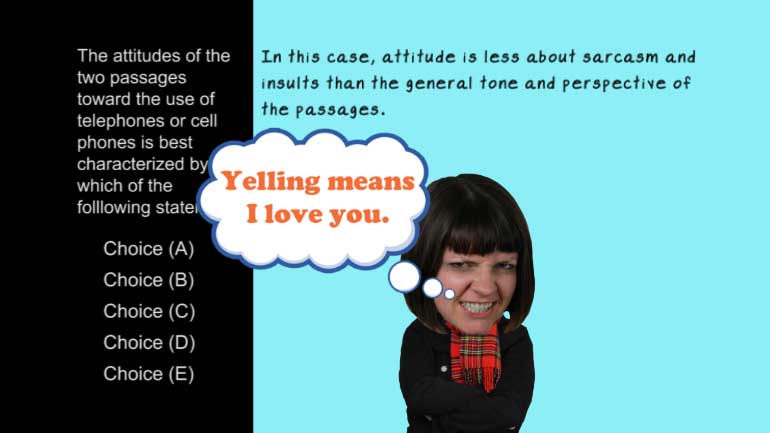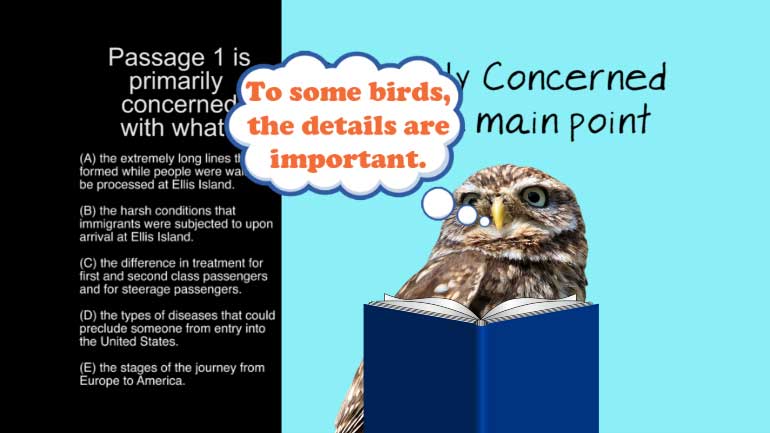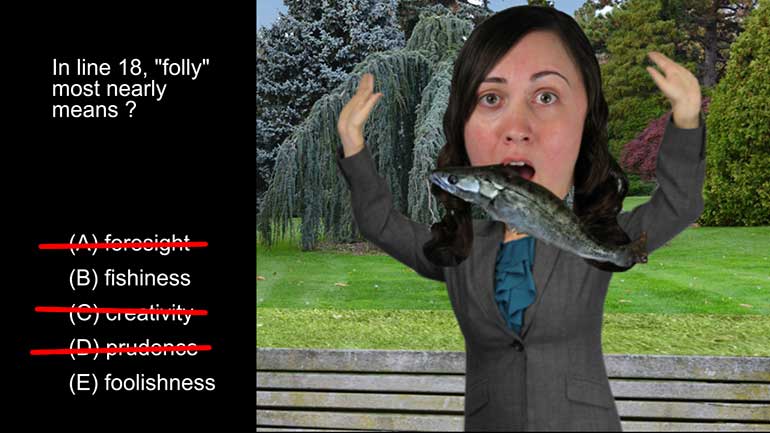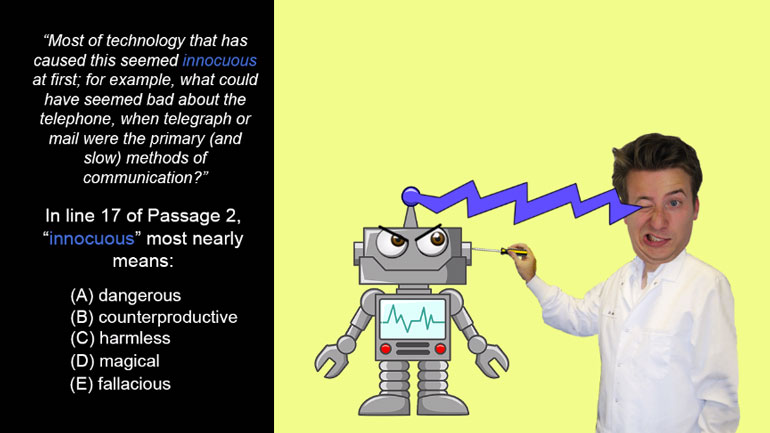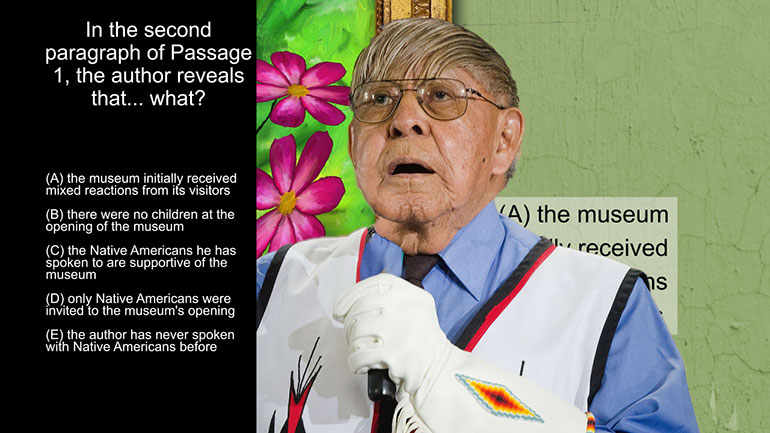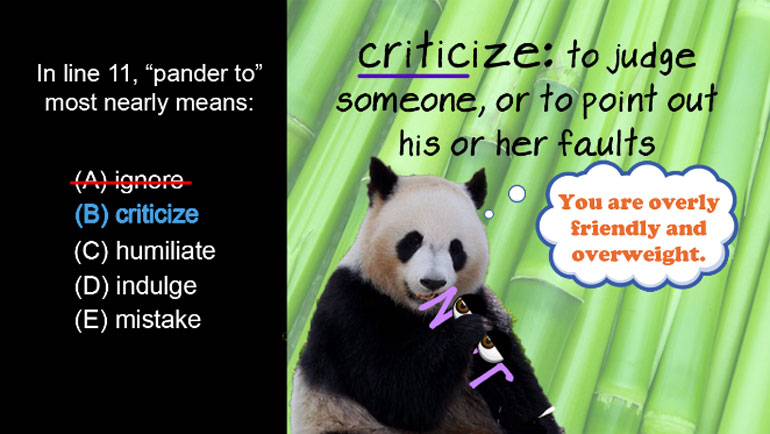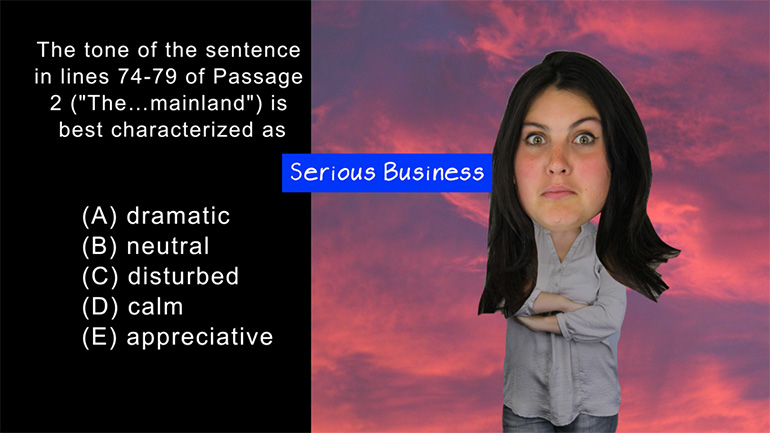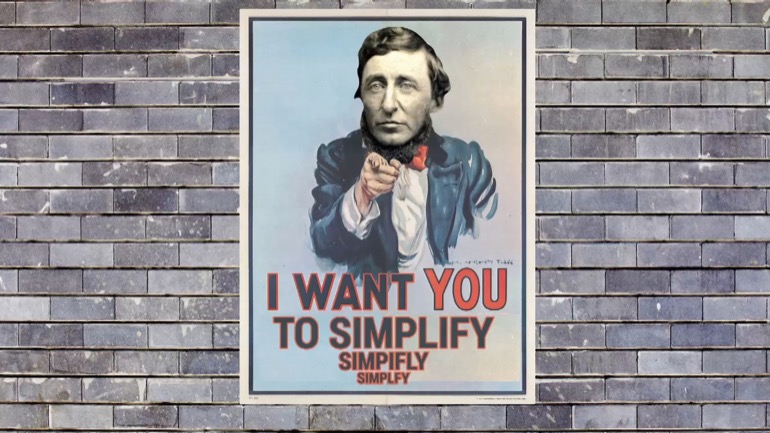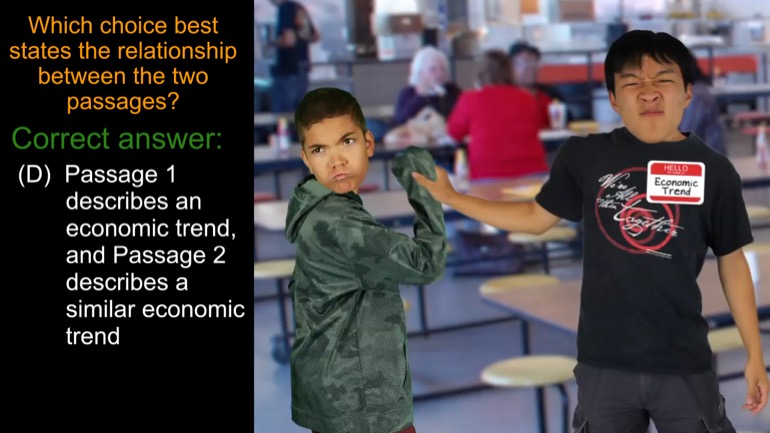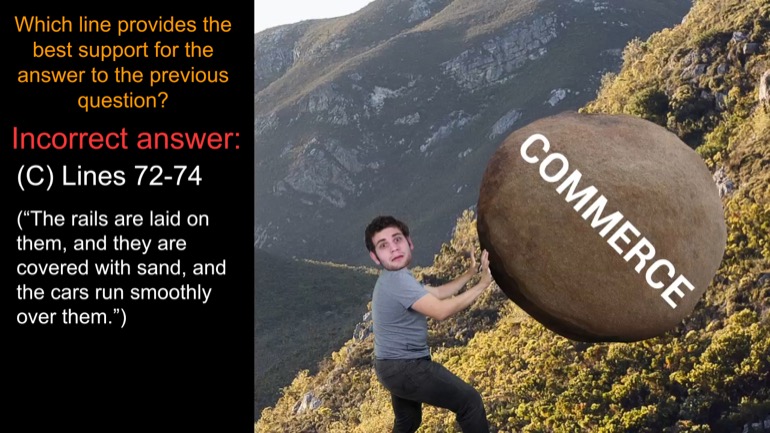ShmoopTube
Where Monty Python meets your 10th grade teacher.
Search Thousands of Shmoop Videos
SAT Reading 1.3 Passage Comparison 202 Views
Share It!
Description:
SAT Reading: Passage Comparison Drill 1, Problem 3
- Foreign Language / Chinese Subtitled
- Foreign Language / Arabic Subtitled
- Foreign Language / Spanish Subtitled
- Foreign Language / Korean Subtitled
- Information and Ideas / Interpreting words and phrases in context
- Product Type / SAT Reading
- Reading Assessment / Connections/Comparisons in Two Passages
- Reading closely / Interpreting words and phrases in context
Transcript
- 00:02
Open wide! It's time for your daily dose of Shmoop...
- 00:06
Pause, and behold -- the triumphant return
- 00:09
of passages one and two...
- 00:15
In line 18, "folly" most nearly means...what?
- 00:18
And here are the potential answers...
Full Transcript
- 00:24
Let's take a quick look back at line 18 to see how the mysterious word, "folly," is used.
- 00:30
OK, it seems like the word needs to have a negative connotation, since this author is
- 00:35
unabashedly biased against the would-be censors.
- 00:41
Also, we note the magic conjunction "and" between "folly' and "shortsightedness"...
- 00:45
...which lets us know that the two have to go together in some way.
- 00:51
The "fore" in "foresightedness" sounds like the "fore" in "before."
- 00:57
This reminds us that "foresightedness" refers to when a person can look ahead and
- 01:01
predict something before it happens.
- 01:03
It's not a fortuneteller thing, really. Having foresight is all about analyzing what's
- 01:08
going on around you to predict possible outcomes.
- 01:11
In any case, we know that "foresightedness" is the opposite of "shortsightedness."
- 01:16
Since the magic conjunction "and" told us that "jolly" had to jibe with "shortsightedness,"
- 01:20
we know (A) is incorrect. "Creativity" has a positive connotation,
- 01:25
so we can eliminate it pretty easily.
- 01:30
It wouldn't make sense for this particular author to compliment these censor-happy ladies,
- 01:33
with whom he or she obviously disagrees... especially when in the author's view they
- 01:38
were trying to censor creativity. "Prudence" reminds us of the word "prude,"
- 01:45
which describes somebody who's way too concerned with everything being proper and following
- 01:51
every rule to the letter.
- 01:53
Though the shortened form of the word has a negative connotation, having "prudence"
- 01:57
is generally considered a good thing, because it refers to careful planning and solid judgment.
- 02:03
So, once again, we can eliminate a word because its connotation is just too positive.
- 02:08
"Fishiness" does have a negative connotation like the one we're looking for. It can either
- 02:12
refer to something that actually smells like a fish...
- 02:15
...or to a person who's cold emotionally...
- 02:17
...or to a person or situation that's suspicious in some way.
- 02:21
None of these definitions seem to be exactly what the author is shooting for here, so we'll
- 02:25
go ahead and cross (B) off of the list. "Folly" sounds like the vocabulary love
- 02:29
child of "jolly" and "fool," which tips us off that "foolishness" is a good fit.
- 02:35
We've got the negative connotation we want, and it totally jibes with "shortsightedness."
- 02:39
So we know that the author is basically calling people who try to change pop music "silly."
- 02:44
Although... maybe not this silly.
Related Videos
How does Thoreau feel about commerce? He writes, "We don't ride upon the railroad; it rides upon us." He wants and end to the war fighting for the...
How was the Beanie Baby era parallel to the Tulip Bubble? Similar events, only the TulipMania almost bankrupted Holland. Bean Babies only bankrupte...
Contemplating one's life is key to fulfilled happiness. Thoreau's theme revolves around the simple life well lived. He clearly never tried virtual...
Thoreau was all about simplicity; anything that took away from his vision was the enemy. Mechanical aids were one of them. Guess he had to train a...
